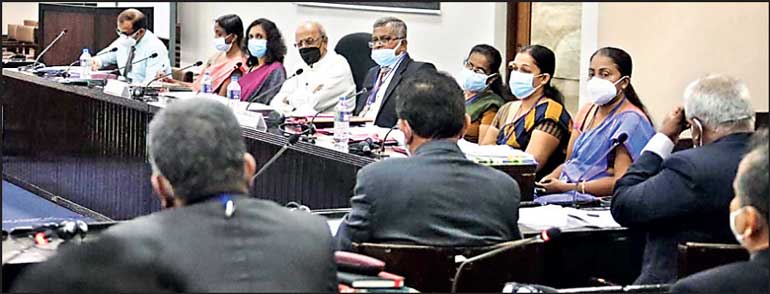Saturday Feb 21, 2026
Saturday Feb 21, 2026
Thursday, 22 July 2021 00:26 - - {{hitsCtrl.values.hits}}

The wrong tax classification in the import of 3,000 Toyota Hilux Smart Cabs had resulted in the loss of customs levies amounting to over Rs. 3 billion, the Committee on Public Accounts (COPA) disclosed in a recent report.
It said that Customs duties were charged for a category classified as ‘singles cabs’, thus resulting in the massive Rs. 3 billion loss.
The committee, in its report presented to Parliament this week, observed that a large amount of tax income had been lost due to irregularities at Customs during the importation of vehicles, as well irregularities during the registration of these vehicles with the Department of Motor Traffic.
According to the report, vehicles imported by Customs for special purposes at a lower tax rate had been registered with the Department of Motor Traffic as dual-purpose vehicles. Between 2010 and 2019, 44 vans were imported as special purpose vans with a lower tax rate and subsequently registered with the Department of Motor Traffic as dual-purpose vehicles for the purpose of transporting passengers and goods. Due to this process, the Government is said to have lost at least Rs. 1.3 billion in taxes.
The report said that the Government had lost Rs. 56 million in taxes due to the Toyota Land Cruiser not being properly classified by Customs under the ‘passenger transport’ category.
A Toyota Land Cruiser luxury vehicle that was imported, fitted with a public address (PA) system, had been charged a duty of Rs. 1.5 million under the ‘special purpose vehicle’ category (87059091; had it been cleared under the category of ‘passenger transport’ (87032450), a duty of approximately Rs. 56 million could have been charged.
The committee also observed that in order to avert the irregularities occurring in the importation of special purpose vehicles, the vehicles cleared under the Harmonised System Code (HS code) No. 8705 by Customs should be registered with the Department of Motor Traffic under a special number.
COPA Chairman Prof. Tissa Vitharana, who presented the report to Parliament, said that the country loses a huge amount of money annually due to policies not being updated as well as irregularities in many Government institutions.
He pointed out that the annual expenditure on human-elephant conflict was one of the best examples of this.
“According to the existing policies, the annual budget allocates a large amount of money every year for activities, including the construction of elephant fences. What is done here is to confine the elephants to a single confined area and fence around them. What often happens here is that the baby elephant and the female elephant are herded into the area. Giant elephants will not be herded there. Then after some time, when there was a shortage of food in that confined area, the animals died due to starvation. At the same time rogue elephants are attacking villages, so obviously the policy was wrong.”
Vitharana said the elephant fences should be made, not only around the area where the people live, but also around the farmlands, and that an environment should be created for the elephants in the rest of the area to roam freely.
This method had been tested in Anuradhapura and Galgamuwa areas by Dr. Preethiviraj Fernando and had obtained very high results, the COPA Chairman added.
Prof. Vitharana also said that he had visited these areas and held discussions with the villagers and that they approved this methodology, and that since then the conflict between humans and elephants had naturally subsided. Due to this, a comprehensive report has been submitted to revise the policies, he said.
The COPA Chairman further said that a number of powerful companies in the country which have good auditing and accounting systems, had not paid their taxes to the Department of Inland Revenue for a period of five to six years, and that the amount of tax lost due to this was huge.
He pointed out that the reason for this was that these companies had been given the opportunity to appeal three times regarding the taxes due.
“The same institution should not be allowed to file appeals three times, as this not only delays payment of taxes but also the subsequent court action against such companies get delayed.”
He also said that six months had been given for appeals but recommended that the number of appeals be reduced to one.